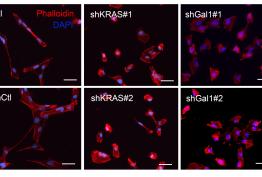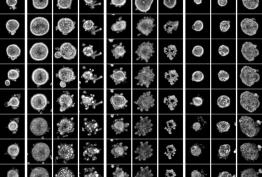A recent research has identified S-adenosyl-L-methionine (SAM) as a novel target for the treatment of Niemann-Pick type C (NPC) disease. NPC disease is a lysosomal storage disorder that causes neurodegeneration, affecting primarily the cerebellum with an extended impact in visceral organs like the liver. The disease is caused by low expression of resident lysosomal proteins, NPC1 and NPC2, encoded by NPC1 and NPC2, which work together in the regulation of lysosomal cholesterol homeostasis. The primary biochemical feature of NPC disease is the accumulation of cholesterol in endolysosomes and mitochondria through lysosomal-mitochondrial contact sites. The trafficking of cholesterol to mitochondria impairs mitochondrial function and stimulates the generation of free radicals and oxidative species as a consequence of crippled antioxidant defense due to low glutathione levels. SAM is a methionine derivative synthesized in different organs by methionine adenosyl transferase (MAT), which exerts two pivotal functions, including its role as a universal methyl donor and as a precursor for cysteine required for the synthesis of glutathione in the cytosol. As a consequence of its methylation function, SAM is used for the alternative synthesis of phosphatidylcholine (PC) from phosphatidyethanolamine (PE) catalyzed by PE methyl transferase, and hence acts as a crucial player in the maintenance of appropriate PC to PE ratio, which regulates membrane dynamics and fluidity. Like glutathione, SAM is synthesized exclusively in the cytosol and found in mitochondria where it regulates key functions, including mitochondrial membrane fluidity.
The work carried out by the group "Mitochondrial regulation of cell death" belonging to the IIBB-CSIC/IDIBAPS/CIBEREHD, with Leire Goicoechea as first author, and directed by Carmen García-Ruiz and José C Fernández-Checa, has determined the homeostasis of SAM in Npc1-/- mice, a murine model that reproduces the characteristic changes of NPC disease in humans.This investigation has been possible due in part to the funding received by the American non-profit Association "Together Strong NPC Foundation”. This study was done in collaboration with Drs. Josefina Casas and Gemma Frabrias from the IIQAB (Institut D’Investigacions Químiques I Ambientals de Barcelona, CSIC).
In a first series of observations using intracellular fractionation assays, they observed that levels of SAM were markedly reduced in both cytosol and mitochondrial fractions of brain from Npc1-/- mice. While this effect was not paralleled by increased generation of S-adenosyl-L-homocysteine, the metabolite derived from SAM upon methylation reactions, low expression of Mat2a, the predominant isoform of MAT in the brain, was found. In addition, liquid chromatograpy-high resolution mass spectrometry assays revealed a lower PC/PE in mitochondria. Treatment of Npc1-/- mice with SAM at similar concentrations used in the clinic, replenished the levels of SAM in the cytosol and mitochondria, and more importantly the restoration of SAM levels increased the PC/PE ratio in mitochondrial membranes leading to the recovery of membrane fluidity to levels required for the optimal transport of glutathione from the cytosol to mitochondria. SAM administration to Npc1-/- mice protected Purkinje cells of the cerebellum against neurodegeneration, improved locomotor activity and extended the average and maximal life span of Npc1-/- mice. Compared to other therapies currently being investigated for NPC disease, SAM has been used in the clinic for psychiatric and neurological diseases, it is well tolerated and widely available over the counter as a food supplement and hence could emerge as a promising therapy for the treatment of NPC disease. Further studies will be needed to determine whether SAM treatment may have synergistic effects with approved therapies by the EMA or the FDA.
Leire Goicoechea et al., S-adenosyl-L-methionine restores brain mitochondrial membrane fluidity and GSH content improving Niemann-Pick type C disease. https://doi.org/10.1016/j.redox.2024.103150.







